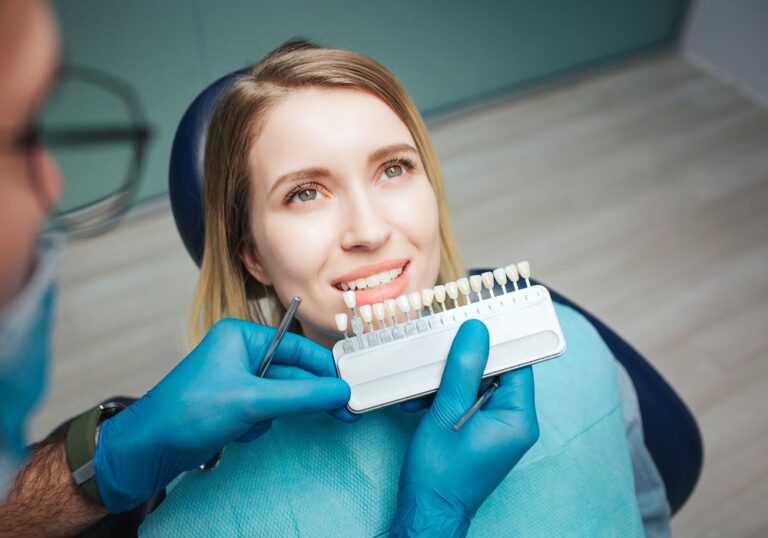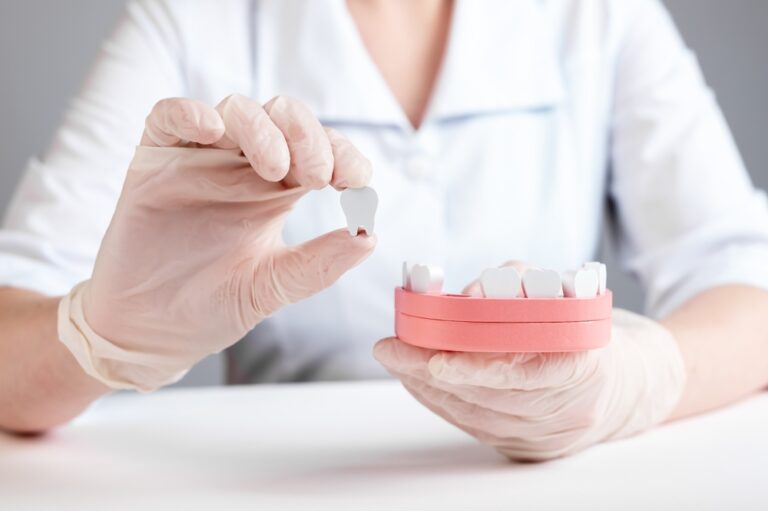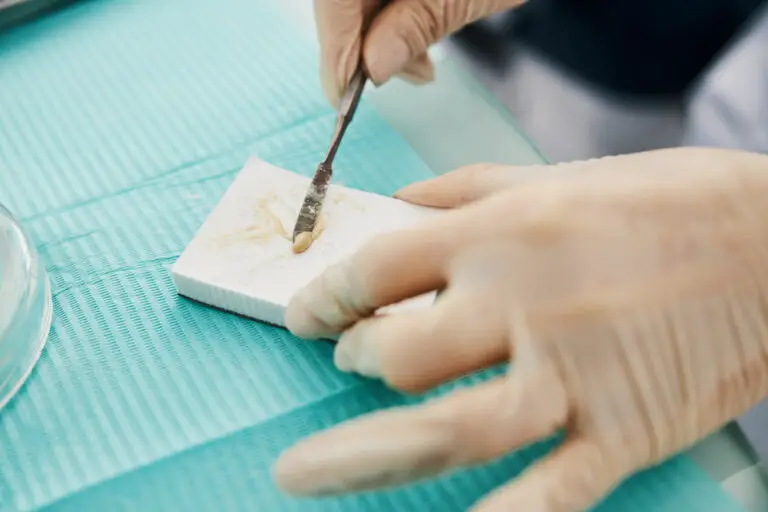Sudden tooth pain can be alarming and concerning when it seems to arise out of nowhere. While brief sensitivity or mild aches are common, intense or persistent tooth pain should never be ignored. It usually signifies an underlying dental issue needing prompt treatment.
Understanding the most likely reasons for sudden tooth discomfort empowers you to seek help when needed. Becoming familiar with the diagnostic process also helps you communicate key details to your dentist during an exam.
With an accurate diagnosis, even long-lasting or severe tooth pain can often be resolved with the appropriate dental treatment.
What Triggers Sudden Tooth Pain?
Sudden tooth pain has several possible causes, including:
Dental Infections
Infections within the tooth or gums account for many cases of acute tooth pain. The inner tooth is made up of soft pulp containing nerves and blood vessels. If decay reaches the pulp, bacteria can set off an infection. Abscesses may also form at the tooth root tip.
Common infection types include:
- Dental caries – Cavities allow bacteria to penetrate the enamel and infect the pulp. Pain is often worsened by hot or cold stimuli.
- Abscessed tooth – Infection of the pulp leads to a pocket of pus building up at the root tip, putting intense pressure on surrounding tissues. This causes severe constant throbbing and pain radiating to the jaw, ear, or head.
- Pericoronitis – Bacterial infection in the flap of gum tissue surrounding an impacted or partially erupted wisdom tooth. Chewing exacerbates the pain.
- Periodontal infections – Advanced gum disease can spread infection into the bone surrounding teeth. This leads to loose teeth, persistent bad breath, and throbbing pain.
- Peri-implantitis – An infection develops in the gum and bone tissue surrounding a dental implant. There is swelling, tenderness, and pain upon chewing.
Cracked, Broken, or Loose Teeth
Cracks, chips, fractures in teeth or compromised restorations like fillings can trigger sudden pain when chewing or exposing the tooth to thermal changes.
- Cracked tooth – A cracked cusp or even a small hairline crack reaching down into a tooth lets fluid seep inside, causing pain with biting or temperature changes.
- Split tooth – A crack extends between the chewing cusps of a molar, often caused by grinding. Biting or hard chewing becomes extremely painful.
- Broken cusp – Portions of an upper molar cusp may break off due to decay or trauma. The exposed inner tooth structure is extremely sensitive.
- Vertical root fracture – A crack extends down the full length of the root, often causing pain with temperature changes or chewing along with gum inflammation. The tooth usually requires extraction.
- Loose filling – Loss of a filling exposes sensitive underlying decayed areas. Hot/cold stimuli and chewing pressure triggers sudden pain.
Dental Sensitivity
Increased sensitivity in one or more teeth is another common source of sudden pain, especially with temperature changes or sweets. Sensitivity has several potential causes:
- Gum recession – Loss of protective gum tissue exposes sensitive root surfaces to cold or hot foods/drinks.
- Gum disease – Inflamed, irritated gums recede from the teeth, leading to widespread sensitivity.
- Worn enamel – Years of grinding or acid erosion from gastric reflux wear away the protective enamel layer.
- Tooth whitening – Peroxide whitening treatments can temporarily dehydrate and increase sensitivity.
- Bruxism – Chronic teeth grinding at night wears down enamel and dentin layers.
Referred Tooth Pain
Tooth nerves share pathways with nerves from other areas of the head and neck. Pain originating elsewhere can be incorrectly perceived as coming from a tooth. Common examples include:
- Sinusitis – Congestion and pressure from acute sinus infections feels like dull, throbbing pain in upper back teeth.
- Heart attack – Cardiac pain is sometimes first noticed in the upper teeth and jaw due to overlapping nerves.
- Trigeminal neuralgia – This condition causes abnormal nerve firing that leads to intense, stabbing tooth pain triggered simply by speech or touch.
- TMJ dysfunction – Jaw joint issues like arthritis or disc displacement can refer pain to the teeth, especially molars. Chewing and jaw movement increases the pain.
Recognizing Symptoms of Sudden Tooth Pain
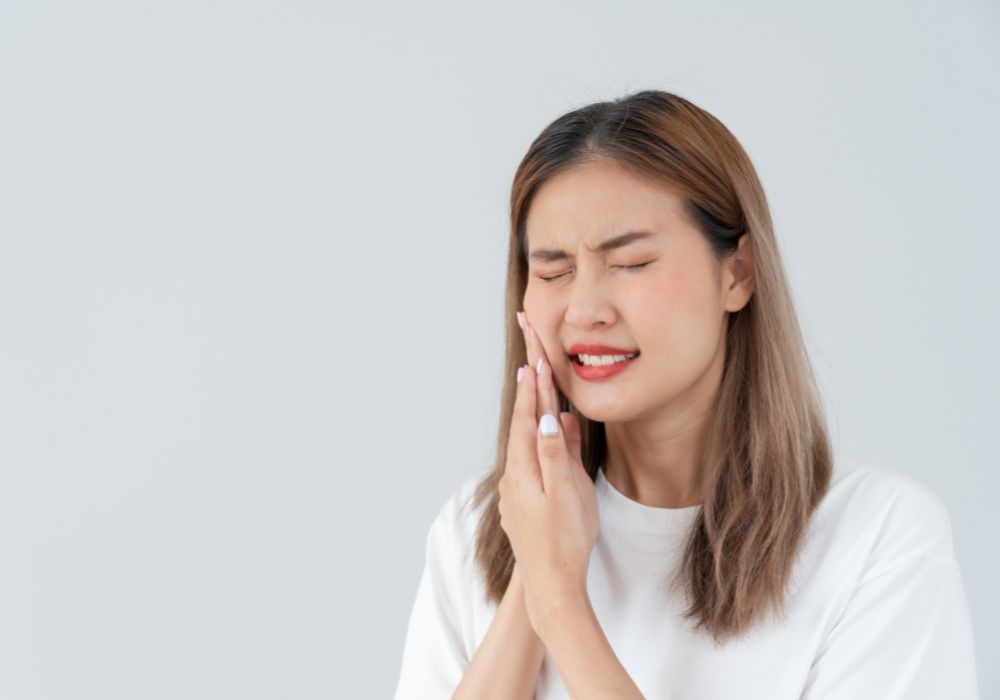
Along with a detailed oral exam, your dentist will ask about the nature of the tooth pain to aid diagnosis. Be alert for these common symptoms:
- Constant, throbbing pain – Signals an infection or abscess within the tooth that requires drainage.
- Radiating pain – Tooth infections can cause jaw, head, and ear pain as pressure builds.
- Sharp pain when chewing – Fractured teeth or loose fillings cause sensitivity when biting down.
- Sensitivity to hot or cold – Signifies tooth decay reaching the inner pulp or gum recession exposing roots.
- Pain when releasing bite pressure – Indicative of a crack within the tooth itself.
- Sweet sensitivity – Cavities or exposed dentinal tubules cause pain with sugary foods.
- Night pain that improves during the day – Abscessed infections often flare up and drain cyclically.
- Whole areas of teeth hurting – May indicate sinus, TMJ, or cardiac referred pain rather than a dental issue.
Getting a Diagnosis from Your Dentist
Since tooth pain has many causes, only a full dental exam can pinpoint the exact source. Diagnostic steps include:
Medical History
Your dentist will ask about your oral hygiene habits, diet, symptoms, pain triggers, location, intensity, and duration. Recent dental treatment or infections are noted.
Oral Examination
Teeth, gums, tongue, jaws, and lymph nodes are examined for redness, swelling, chips, lesions, or asymmetry that could indicate a problem area.
Percussion Testing
Gently tapping on suspect teeth with a dental instrument isolates pain to a particular tooth.
Bite Alignment Assessment
Uneven bite contacts or excessive pressure on one side is checked. This could contribute to pain.
Sensitivity Testing
Your reaction is observed when cold air, heated probe tips, or sweet liquids are applied to zones of suspected sensitivity.
X-rays
Dental radiographs allow visualization of the tooth roots, surrounding bone, and any hidden abscesses, cysts, or bone loss.
Pulp Vitality Testing
Electric or thermal stimulation helps determine if the tooth pulp is still vital or necrotic due to infection.
With an accurate diagnosis, the ideal treatment plan can be formed to provide lasting relief.
Treatment Options for Different Causes of Sudden Tooth Pain
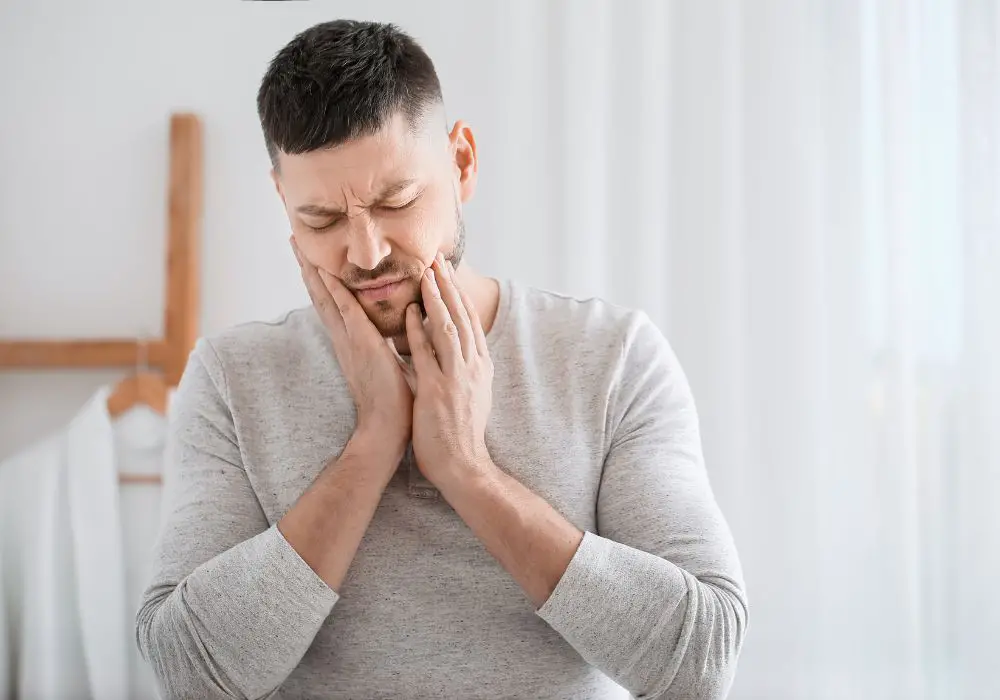
The treatment method depends greatly on the identified cause of pain. Common options include:
Treating Infections
- Root canal – The infected pulp is removed and interior cleaned and sealed to heal apical abscesses.
- Antibiotics – Prescribed to treat acute abscess, pericoronitis, or advanced periodontal infections.
- Drainage – Lancing a swollen abscess relieves pressure and provides instant pain relief.
- Tooth extraction – Required for non-restorable infections or vertical root fractures.
Fixing Cracks and Breaks
- Dental crown – A porcelain, metal, or ceramic crown protects and stabilizes a cracked or fractured tooth.
- Dental bonding – Tooth-colored composite material can repair fractured cusps or small cracks.
- Root splinting – Stabilizing periodontal splint placed between multiple teeth with suspected root fractures.
Reducing Sensitive Teeth
- Desensitizing toothpaste – Special formulations help block pain transmission. Potassium nitrate and stannous fluoride are two active ingredients.
- Fluoride treatments – Topical fluoride helps strengthen enamel and reduce sensitivity.
- Dental bonding – Can be used to coat exposed root surfaces and protect dentin.
- Nightguard – Worn while sleeping to prevent grinding that accelerates wear and sensitivity.
Referred Pain Treatment
- Addressing the primary source, like taking sinus medication for sinus-related toothaches.
- Dental treatment like a root canal for severe trigeminal neuralgia.
- Recognizing heart attack symptoms and seeking immediate care.
When to Seek Emergency Dental Care?
Seek emergency dental help for:
- Uncontrolled mouth bleeding not stopped with pressure
- Facial swelling that blocks airway or swallowing
- Trauma causing lost or knocked-out teeth
- Severe constant pain and difficulty eating/sleeping
Many dental clinics offer emergency or after-hours appointments for urgent issues requiring prompt care outside normal office hours.
Preventing Future Sudden Tooth Pain

Practicing excellent daily oral hygiene and getting regular professional cleanings helps prevent many causes of sudden pain. Additional protective tips include:
- Brush and floss thoroughly – Helps defend against decay and dental infections.
- Eat a low-sugar, nutritious diet – Reduces tooth decay risk and inflammation.
- Avoid chewing hard foods/objects – Prevents cracked and broken teeth.
- Wear a nightguard if you grind teeth – Protects against damaging wear.
- Quit smoking – Decreases gum disease risk.
- Visit your dentist twice yearly – For cleanings and early detection of potential problems.
- Get recommended dental work done – Like fillings, sealants, and crowns to prevent pain from worsening decay or cracks.
Paying attention to your oral health helps avoid many sources of sudden tooth pain. Seek prompt professional care if discomfort occurs so the cause can be diagnosed and treated.
Frequently Asked Questions
Q: Why does my tooth hurt for no reason when I bite down?
A: Pain when biting or chewing, especially when releasing the pressure, is most often due to a cracked tooth that allows fluid seepage into the dentin. However, it can also be caused by a fractured filling, a loose crown, or an abscess putting pressure on nerves. Seeing your dentist promptly allows proper diagnosis and treatment.
Q: I have throbbing tooth pain at night that goes away during the day. What’s the cause?
A: Throbbing or pulsating tooth pain at night is a hallmark symptom of an abscessed tooth. The pus builds up and puts pressure on the root throughout the day, then often drains slightly when you lay down, relieving the pain until morning when it refills. This requires urgent dental treatment.
Q: Why are my teeth suddenly sensitive to cold? **
A: Increased sensitivity, especially to cold, often indicates gum recession and erosion is exposing the tooth roots and dentin. Causes include acidic dietary pH, aggressive brushing, and gum disease. See your dentist to identify the source of sensitivity and get specialized toothpastes or fluoride treatments to help.
Q: Why do my top back teeth hurt when I bend over? **
A: Upper molar pain triggered by head position changes or tapping on your teeth is likely referred pain from a sinus infection or congestion. See your dentist or doctor to determine if sinusitis is to blame and get appropriate treatment.
Q: I broke a piece of my molar on a hard candy. Now the remaining tooth hurts severely. What should I do?
A: Fracturing parts of your tooth can expose sensitive inner tooth structures and nerves, causing severe pain. The damaged area is vulnerable to further decay as well. See your dentist immediately to smooth any sharp edges and repair the tooth with bonding material or a crown to prevent worsening damage.

